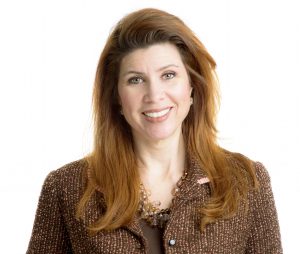 Before the new millennium, I couldn’t have told you who my city councilmember was. I’m not totally confident I could have named the mayor. Back then, I was among the 90 percent of registered voters in Dallas who don’t vote in municipal elections. I figured city races weren’t that important (they just deal with potholes and garbage collection, right?). I rationalized that I didn’t have time to learn the issues and candidates. I’d do my civic duty and vote in the important races, like congressional races, in presidential elections, and statewide offices. But I wouldn’t bother with city elections.
Before the new millennium, I couldn’t have told you who my city councilmember was. I’m not totally confident I could have named the mayor. Back then, I was among the 90 percent of registered voters in Dallas who don’t vote in municipal elections. I figured city races weren’t that important (they just deal with potholes and garbage collection, right?). I rationalized that I didn’t have time to learn the issues and candidates. I’d do my civic duty and vote in the important races, like congressional races, in presidential elections, and statewide offices. But I wouldn’t bother with city elections.
It was 2001 when I first got a glimmer of how very wrong I’d been. After three years in Dallas, my husband Paul and I moved into our first home in the M Streets. Frustrated by the increasing number of modern McMansions that were replacing the historic Tudors in our neighborhood, we started investigating what we could do to protect our homes. This led us to seek conservation district status for our neighborhood, which required approval by the Dallas City Council.
For the next 18 months, I got a civics lesson in municipal politics. I watched the City Plan Commission in action. I worked closely with dedicated, hard-working city staff. I saw the Dallas City Council make far-reaching, long-term decisions that would impact our city and region for decades to come. When the Dallas City Council finally approved our conservation district, I had a Mr. Smith Goes to Washington epiphany: Organized, united residents can make a real difference in our town!
[quote align=”right” color=”000000”]While the issues debated at the national level had once seemed so lofty and important, I now realized that my everyday life was affected more directly by decisions made at Dallas City Hall.[/quote]While the issues debated at the national level had once seemed so lofty and important, I now realized that my everyday life was affected more directly by decisions made at Dallas City Hall. So I joined the 10 percent of registered voters in Dallas who go to the polls every other May. I learned to love local government so much that I ran for city council.
If you’re among the 90 percent of voters who don’t cast ballots in city elections, please make an exception this year. With six open seats — two of which are in East Dallas and Lake Highlands — we have a remarkable opportunity to change business as usual at Dallas City Hall.
But you’re still skeptical. You’re thinking you’ve never voted in a city council election and you don’t know the issues. You’re thinking you can’t possibly learn everything you need to know about the candidates in just six short weeks.
The great thing is, you don’t need to. Just vote for the candidate who’s against the Trinity Toll Road. (Pro tip: “I don’t know” or “I need to study the issue” is code for “I love me some Trinity Toll Road.”)
You’re balking. You don’t make decisions based on a single issue! You take your civic responsibilities seriously! You’re not a one-issue voter!
That’s good to know, because the Trinity Toll Road isn’t a one-issue issue.
A candidate’s position on the Trinity Toll Road tells us much more than whether they think it’s a good idea to build a massive, high-speed toll road through downtown parkland. That’s because the Trinity Toll Road isn’t so much a litmus test, but a vision test that gives us insight into a candidate’s fundamental philosophy about Dallas.
Candidates who oppose the Trinity Toll Road believe our city should be run by the citizens of Dallas, not the Dallas Citizens Council. They understand that it’s better to invest in hundreds of small neighborhood projects than a handful of massive, world-class boondoggles. They believe in building a city that’s a great place to live in, not drive through.
May’s election offers us a chance to change how things are done at 1500 Marilla Street. If you don’t usually vote in municipal races, believe me, I get it. But for the sake of our city, go vote on May 9. It’ll make a world of difference to the future of Dallas.





